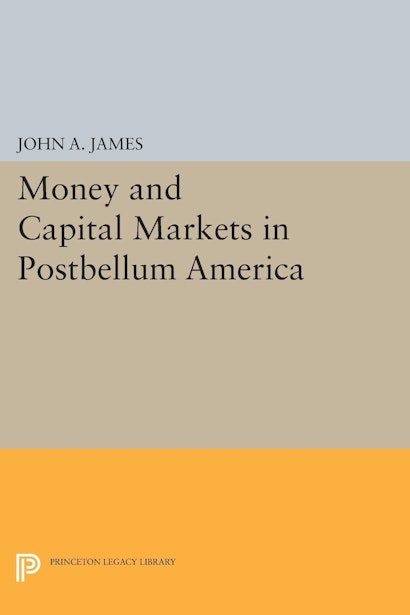Money and Capital Markets in Postbellum America


Hardcover
Paperback
- Price:
- $55.00/£45.00
- ISBN:
- Published:
- Mar 8, 2015
- Copyright:
- 1978
- Pages:
- 310
- Size:
- 6 x 9.25 in.
- Main_subject:
- Economics & Finance
ebook
Postbellum economic change in the United States required an efficient system by which capital could be transferred to areas where it was relatively scarce. In assessing the structure that evolved to meet this need, John James provides a new and convincing explanation of the forces underlying the integration of separate and local money markets to form a national market.
To understand the role of financial markets during the period, the author examines the institutions and operations of the banking system in detail. In contrast to the now-prevailing view among scholars, Professor James finds that the banking system was quite adaptable in responding to institutional constraints, and he focuses in particular on the role of the correspondent banking system. The second part of his book assesses the performance of the market and the forces promoting change during the period. Drawing on a new and more carefully derived set of interest rates, the author tests competing hypotheses to explain integration and advances a more satisfactory alternative theory. He offers the first modern analysis of American financial institutions of the period between the Civil War and the establishment of the Federal Reserve System. In so doing, he adds to our knowledge of the historic role of finance and capital in economic development.
Originally published in 1978.
The Princeton Legacy Library uses the latest print-on-demand technology to again make available previously out-of-print books from the distinguished backlist of Princeton University Press. These editions preserve the original texts of these important books while presenting them in durable paperback and hardcover editions. The goal of the Princeton Legacy Library is to vastly increase access to the rich scholarly heritage found in the thousands of books published by Princeton University Press since its founding in 1905.